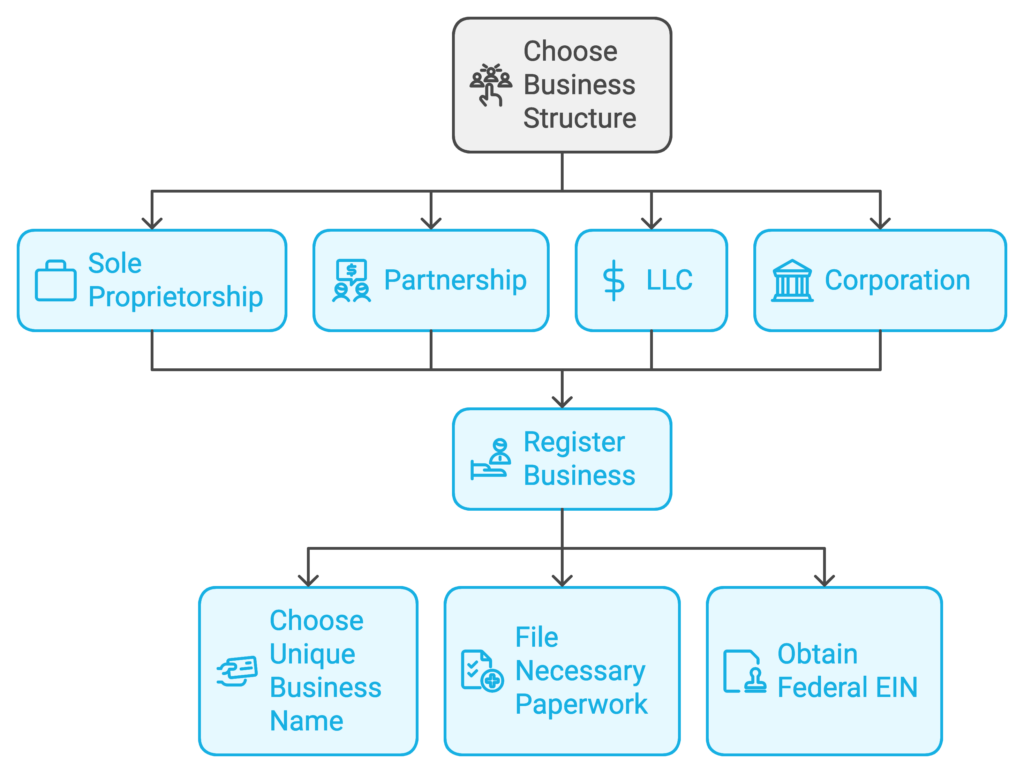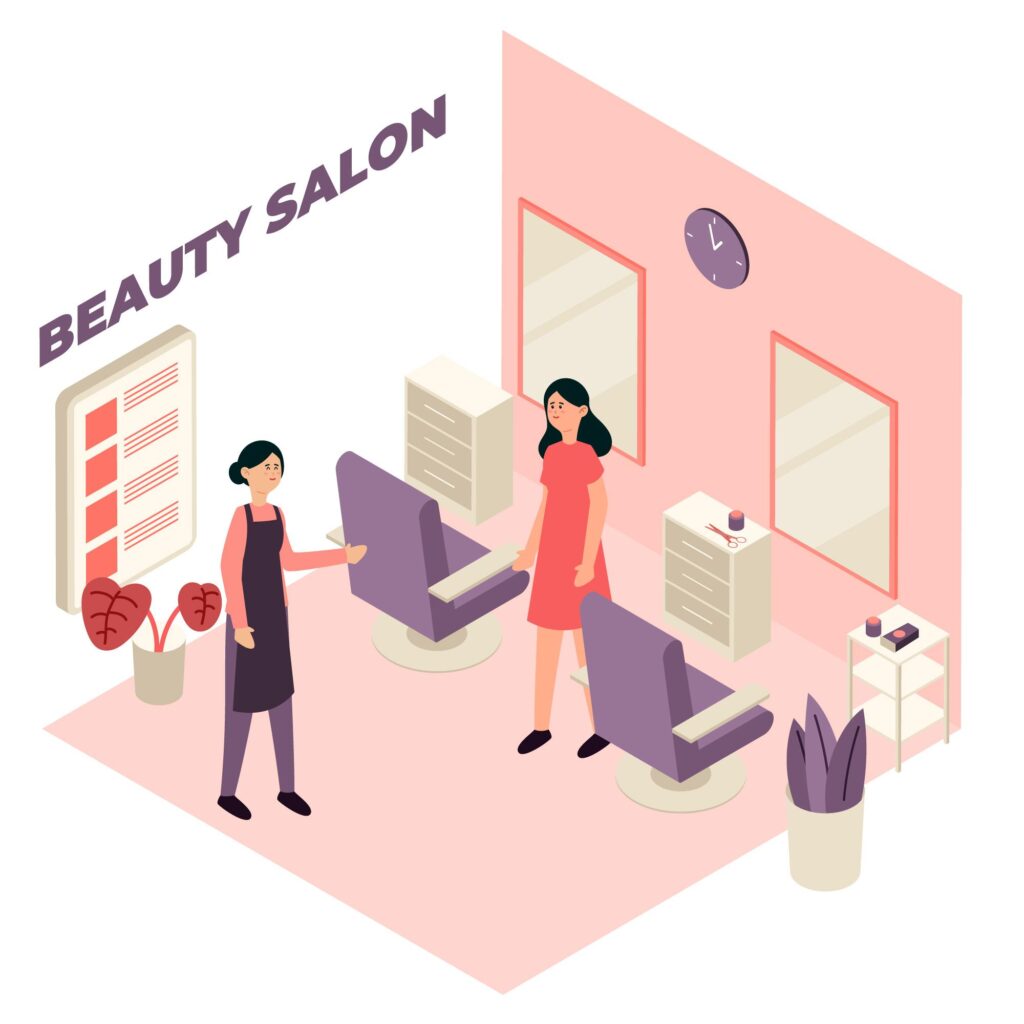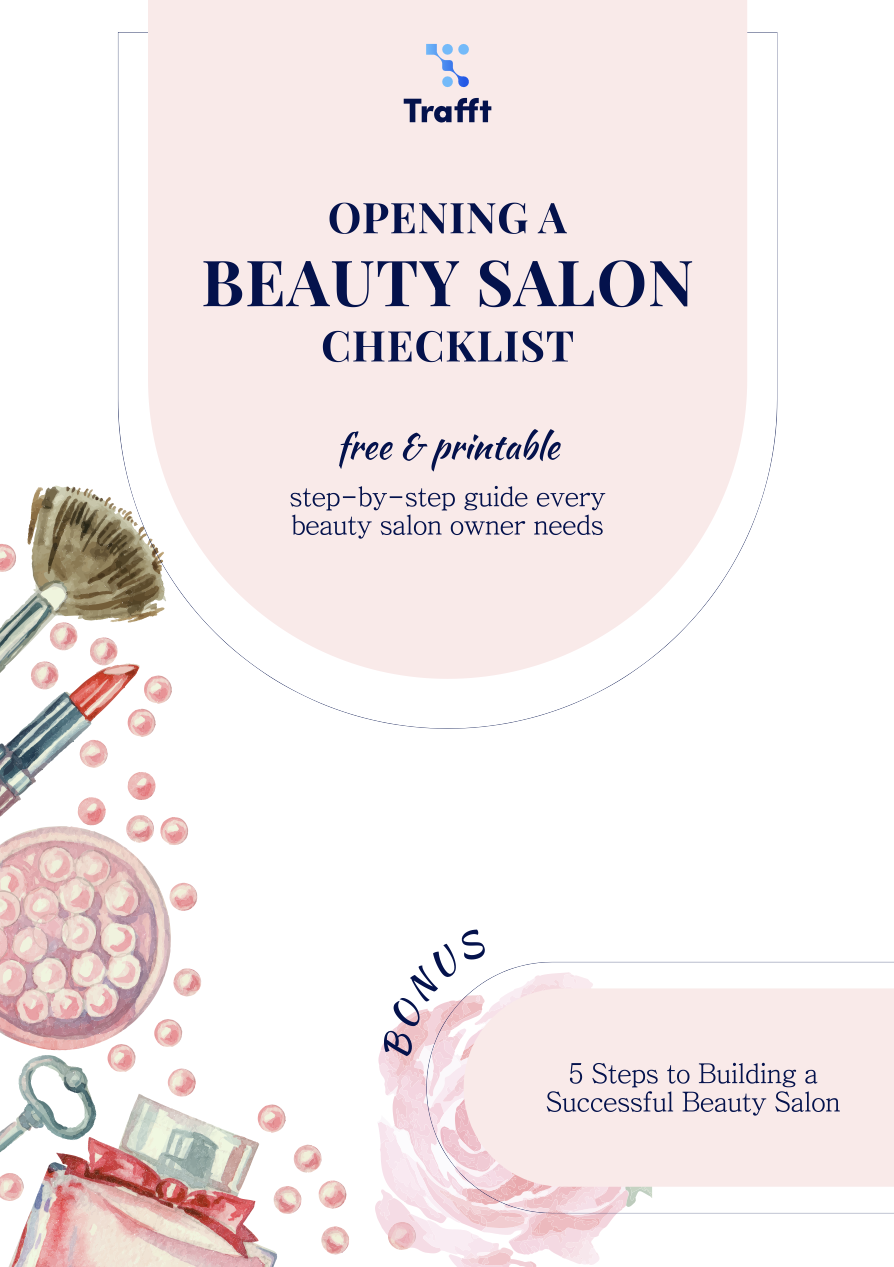Opening a salon is much more than just a flair for style and a passion for beauty. You need to thoroughly understand the technical aspects that form the backbone of a successful business. These include licenses for opening a salon, permits, and detailed space requirements that ensure your salon is not only chic but also compliant with legal and regulatory standards.
Let’s simplify these complexities and outline the key requirements for opening a salon, ensuring you secure all necessary approvals efficiently!
Thank you for subscribing. Check your mail for details
Legal Requirements for Opening a Salon
Legal requirements when opening a salon are one of the first steps you should focus on. You might be wonderng “Can I open a salon without a license?” and the answer is no. It is illegal and you can face serious consequences if you try to do so.
Start with these:
Business registration
Before opening a salon, the first step is to legally register your business. The process starts with choosing the appropriate business structure. Each structure has specific implications for liability, taxation, and ongoing compliance requirements.
- Sole proprietorship - Easy setup and complete control over business decisions, with profits taxed at the individual level.
- Partnership - Facilitates resource sharing and expertise between partners, with profits passed directly to personal tax returns.
- Limited liability company (LLC) - Provides personal liability protection for owners while allowing profits to be taxed on personal income without corporate taxes.
- Corporation - Offers the strongest protection against personal liability and is capable of raising capital through the sale of stock.
Once you’ve chosen your structure, you need to register your business with the appropriate state agency - often the Secretary of State. During this process, you need to choose a unique business name and file the necessary paperwork, which typically includes articles of incorporation for corporations or articles of organization for LLCs.
Visit the Small Business Administration for guidance on choosing a business structure.
Don’t forget to obtain a federal Employer Identification Number (EIN) from the IRS. It’s crucial for tax purposes, especially if you plan to hire employees.

Salon-specific Licenses
Salon-specific licenses will depend on your location. Generally, you need at least a general business license to operate legally. You might also need a specific salon license that covers the scope of services you intend to offer, such as hairdressing or nail services.
Local health department permits are necessary to ensure your salon meets health and safety standards, which include proper sanitation and safe handling of chemicals.
These licenses are typically issued by city or county licensing departments, and you must renew them periodically. Visit your city or county government website, or contact your local health department for the most relevant and specific guidelines for the necessary permits for your salon.
Professional licenses
For you and your staff to operate legally, you must have professional licenses. These are usually issued by the state board of cosmetology and require passing both written and practical exams.
You need different licenses depending on the services your salon offers. For example, cosmetologists, barbers, nail technicians, and estheticians each require different licenses. Once licensed, professionals often need to complete counting education courses to renew their licenses periodically. This ensures that they stay up-to-date with the latest health standards, techniques, and industry regulations.
Location and Building Codes
Before selecting a location for your salon, research the zoning laws in your area. These laws determine where certain types of businesses can operate. Make sure the space you’re considering is zoned for commercial use and specifically permits salon services.
This step is very important to avoid legal issues and fines that could arise from non-compliance.
In addition, compliance with building codes is mandatory when setting up your salon. These codes cover many safety and accessibility requirements, including electrical systems, plumbing, ventilation, and handicap access.
Making sure your salon meets these codes keeps your clients and staff safe, but will also help in smooth legal operation without interruptions from code violations.

Health and Safety Regulations
Health and safety should be paramount in your salon. That’s why you need to thoroughly understand all the regulations and standards to apply to your business.
Sanitation standards
High sanitation is very important for the health and safety of both clients and staff. This includes regular cleaning and disinfection of equipment, proper handling and storage of chemicals, and use of sanitary practices during service.
Detailed guidelines for health and safety regulations can be found on your state’s board of cosmetology or health department. Research “Your State Cosmetology Sanitation Standards” on Google to find detailed guides.
Safety regulations
Your salon must adhere to specific safety protocols to prevent accidents and injuries. This includes the right use of equipment, emergency procedures, and handling hazardous materials. Occupational Safety and Health Administration (OSHA) provides guidelines on workplace safety that are applicable to salon environments.
Regular inspections
Health and safety inspections are conducted periodically to ensure you’re compliant with local and state regulations. You should prepare for these inspections by keeping a record of sanitation practices, ensuring all employees are trained in safety protocols, and making sure your salon meets local building codes.
All information on what to expect and how to prepare for these inspections can be found in your local health department.
Insurance Requirements for Opening a Salon
Opening a salon involves several risks, that’s why you need to secure the right insurance policies. The most common types of insurance required for a salon include:
General liability insurance
This is the primary insurance that protects your salon against claims of bodily injury or property damage that clients might experience while on your premises. For example, if they slip on a wet floor and get injured, or their belongings get damaged during the visit, general liability insurance will cover legal fees and any compensation needed. You need this insurance to protect you against common accidents and will ensure such incidents don’t financially cripple your business.
Property insurance
This one is important for protecting your salon’s physical assets. Property insurance covers damage to your building and its contents caused by fire, theft, vandalism, or natural disasters. It will help you replace or repair furniture, styling tools, computers, and even the building itself, ensuring your salon can recover from physical damage quickly. Plus, some policies may cover loss of income resulting from such events, and help you stay afloat during closures or renovations.
Professional liability insurance
Professional liability insurance (PLI) is particularly important in the beauty industry where outcomes of services can sometimes lead to dissatisfied clients or claims of harm. If a chemical treatment causes a client's hair to be damaged or leads to a skin reaction, for example, professional liability insurance will cover legal fees and settlements. This insurance is very important for protecting you against claims that could arise from mistakes or alleged negligence in the professional service provided.
Worker’s compensation insurance
Most states require that you have workers’ compensation insurance if you plan to employ staff. This insurance will cover medical expenses, rehabilitation costs, and lost wages for employees who get injured or fall ill as a direct result of their job. If a hair stylist, for example, develops a respiratory issue from long-term exposure to chemicals, worker’s compensation ensures they receive necessary medical attention. It also protects you as the owner from legal claims by injured employees.
All of these insurances will help you mitigate financial risks associated with running a salon, and ensure both the business’ and your employees’ safety and security.
In a Nutshell, What Do You Need to Open a Salon?
Legally register your business, choose the right structure, and obtain the necessary licenses and permits. Plus, ensuring the salon complies with local zoning laws and building codes, staying on top of health and safety regulations, and securing the proper insurance policies protects both your clients and your business.
But, once you set the stage for a successful and compliant salon business, you can let your creativity run wild!
Don’t forget to read How much does it cost to open a salon!







